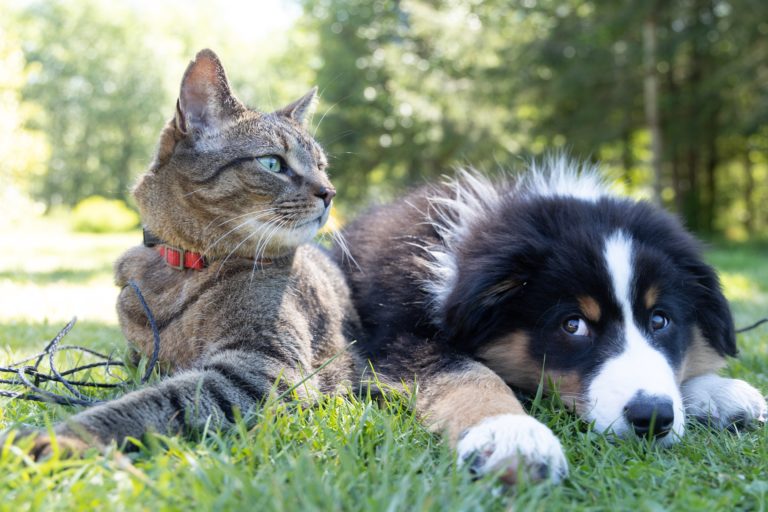Today, on International Animal Rights Day (10th December) we have come some way in advocating for respect and kindness for our furry – and not so furry – friends. The Government’s Action Plan for Animal Welfare sets out various efforts that have been made over the years, as well as what more can be done to drive and protect animal rights. The UK was the first country in the world to pass legislation to protect animals with the Cruel Treatment of Cattle Act in 1822. Since then, it has made CCTV mandatory in slaughterhouses, improved the licensing of dog breeding, pet sales and animal boarding, shutdown the commercial third-party sale of puppies and kittens (thanks to Lucy’s Law), banned plastic microbeads and straws to better protect marine life, and halted the use of wild animals in travelling circuses.
However, there is undoubtedly always more that we can, and should, be doing as a nation of animal lovers, to promote better welfare and protect animal rights. Just like us, animals can feel and recognise feelings – so much was seen in the recent amendment to Animal Welfare (Sentience) Bill, whereby crabs, octopus and lobsters are now recognised as sentient beings. Therefore, rather than viewing animals as human property, we should instead see them as having equal rights, and treating them as companion animals.
There are many factors to consider when thinking about animal welfare – from food production and scientific research, through to the treatment of animals (as pets, on farms and in zoos etc) and how human interference affects wildlife and habitats. However, when focusing on domestic pets, Covid-19 has undeniably exacerbated the demand for puppies, which has inevitably led to an increased risk to their health and welfare.
Earlier this year, researchers at the Royal Veterinary College (RVC) conducted the largest ever study into the impact of the COVID-19 pandemic on puppy purchasing in the UK. Amongst the findings, was the fact that some ‘pandemic puppy’ owners were less likely to have sought credible breeders, less likely to have viewed their puppy in-person prior to collection and more likely to have paid in excess of £2,000 for them. According to the study, although many of these owners may have made well-intentioned decisions and purchases, this increase in demand and buying behaviours has intensified the threat of puppies being sourced from poor welfare environments, bred or raised on puppy farms, and illegally imported.
More than 10 per cent of the ‘pandemic puppy’ owners in the study had not considered purchasing a puppy before the pandemic, more than 86 per cent felt their decision to purchase a puppy had been influenced by the pandemic, and 40 per cent of ‘pandemic puppy’ owners admitted to having no previous dog ownership experience. Therefore, now more than ever, we need to ensure that greater levels of support and advice are in place for current and prospective pet owners, to maintain the welfare of these puppies.
Not only is this demand fuelling a potential puppy welfare crisis, but so too is the popularity for flat-faced (brachycephalic) dogs. The French Bulldog is now the UK’s most popular breed registered with the Kennel Club, and despite the various severe health problems associated with brachycephalic breeds, 93% of owners of flat-faced dogs said they would opt for the same dog again. The demand for these flat-faced dog breeds has amplified welfare issues, including breathing problems and sore eyes. This has been recognised by other countries, including the Netherlands, with the Dutch Kennel Club ending the registration of 12 flat-faced breeds.
While the UK has not followed suit, the Kennel Club says it continues to work alongside breeders, vets, scientists and welfare organisations to further research efforts and look at the ways we can eliminate the health problems they face, subsequently aiding welfare. Dr Dan O’Neill, Senior Lecturer in Companion Animal Epidemiology at the RVC said:
“Many humans love the flat-faced animal look. The popularity of flat-faced dogs, cats and rabbits is ever-increasing. But how many humans ever imagine how it feels to live a flat-faced life from the animal’s perspective? The flat-faced conformation increases the likelihood of these animals having a daily struggle to breathe, along with increased risks of skin fold infections and eye problems.”
Therefore, to aid these welfare efforts, it is also the responsibility of the public to carefully think about the choices they make when it comes to breeds and buying decisions, and the demands they may be fuelling. On International Animal Rights Day and beyond, we must think about the putting the needs of a dog – and all other animals – first, rather than our own. Only then will this go some way in helping to champion better animal welfare.





